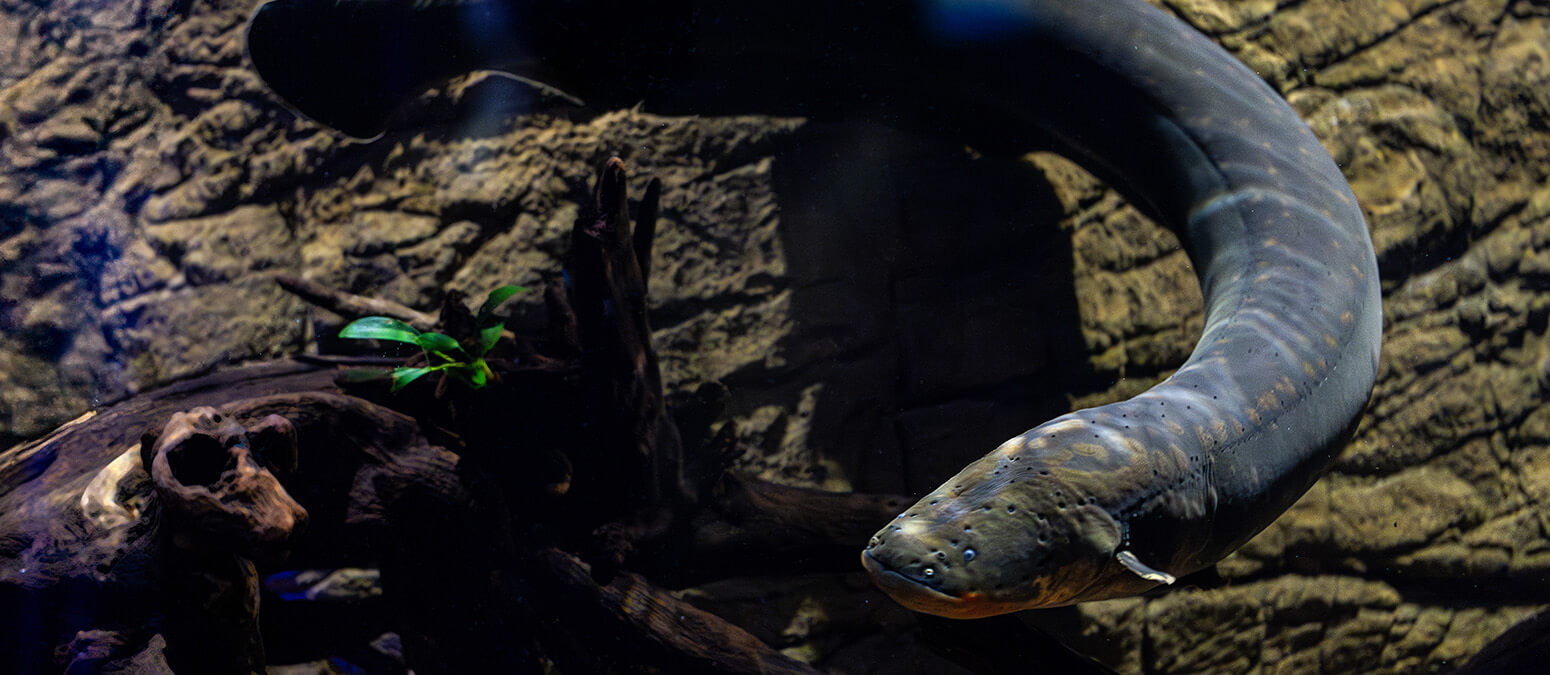
Animal Spotlight
Electric Eel
Electrophorus electricus
Shocking & Often Misunderstood
With a long, snake-like body and a tail that can make up more than 85% of their length, electric eels — in fact, not considered true eels — are some of nature’s most shocking creatures. These powerful fish, more closely related to catfish and carp, can grow up to 10 feet long and weigh over 40 pounds. They have thousands of special cells called electrocytes which generate electric shocks of over 600 volts, enough to knock down a horse.
Electric eels breathe air and mostly hide out during the day, relying on electric pulses to “see” in the dark. They have an average life span of 15 years, which extends up to 22 for females. During the dry season, males build nests with their saliva so females can lay their eggs; males then fertilize and guard the eggs and larvae.
Meet the Neighbors
The electric eel shares its home in the MORPH’D gallery with an array of other species, from the colorful poison dart frogs to intriguing mudskippers, and peculiar paddlefish.
-
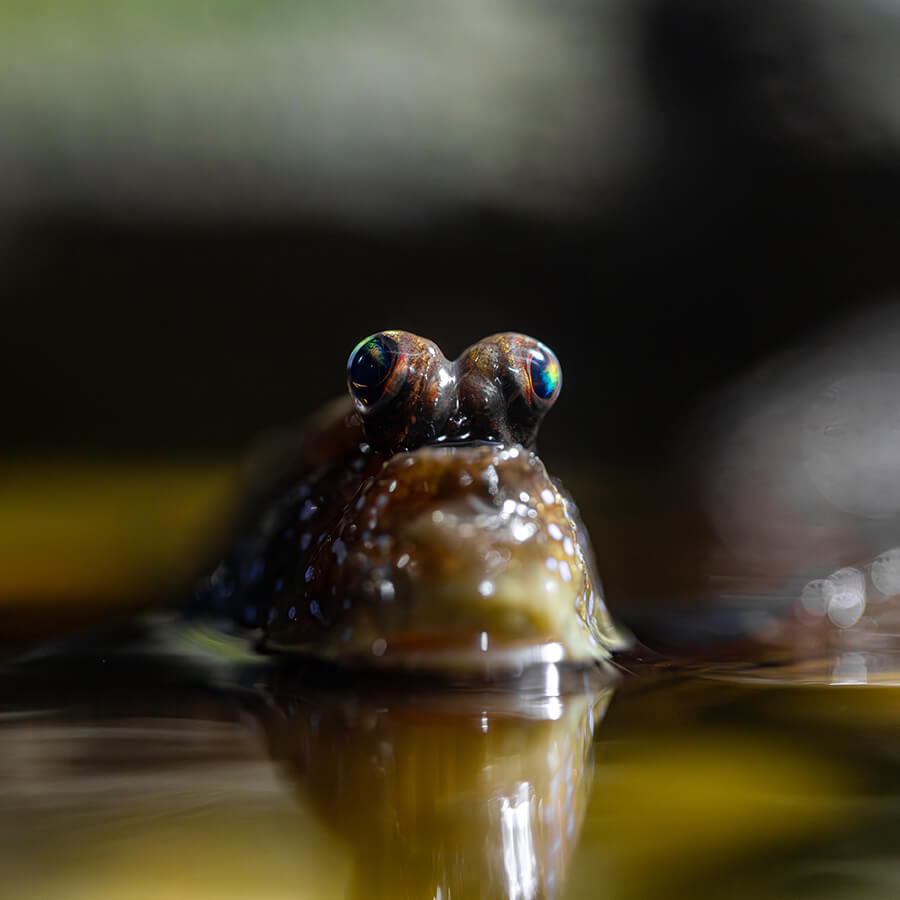
Mudskipper
Wonderful with some wild moves, these fish out of water are evolutionary wonders.
-
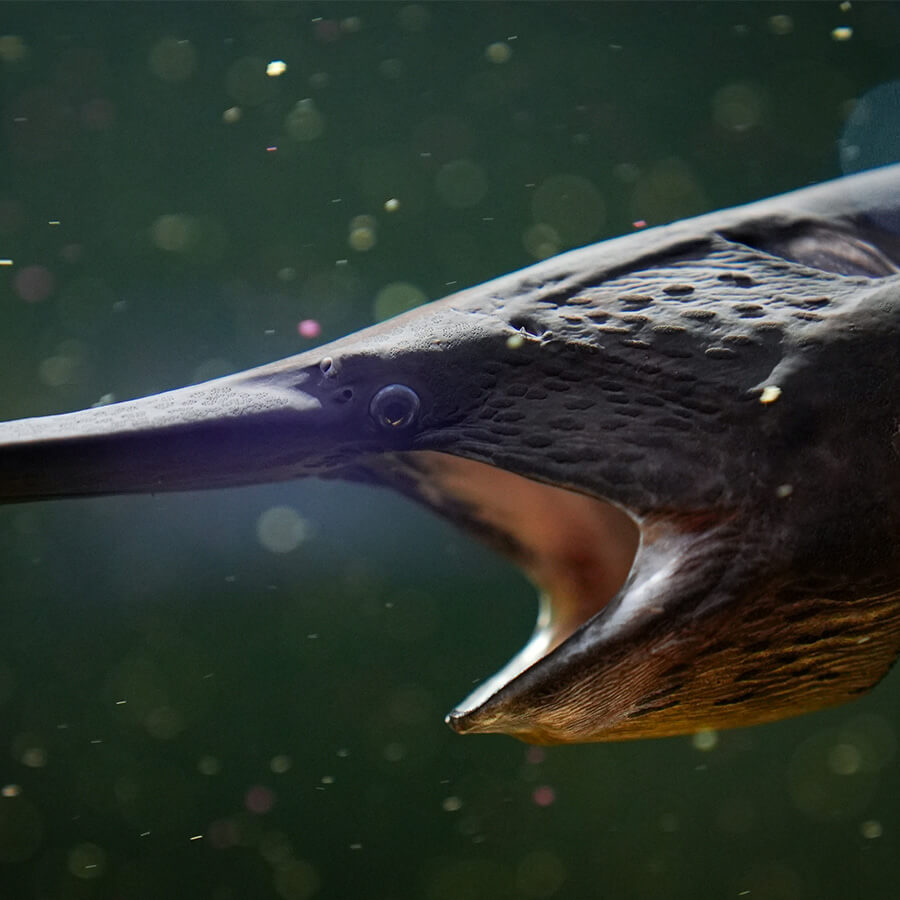
Paddlefish
Boneless, scaleless fish that can grow to be up to 7 feet long and weigh as much as 200 pounds.
-
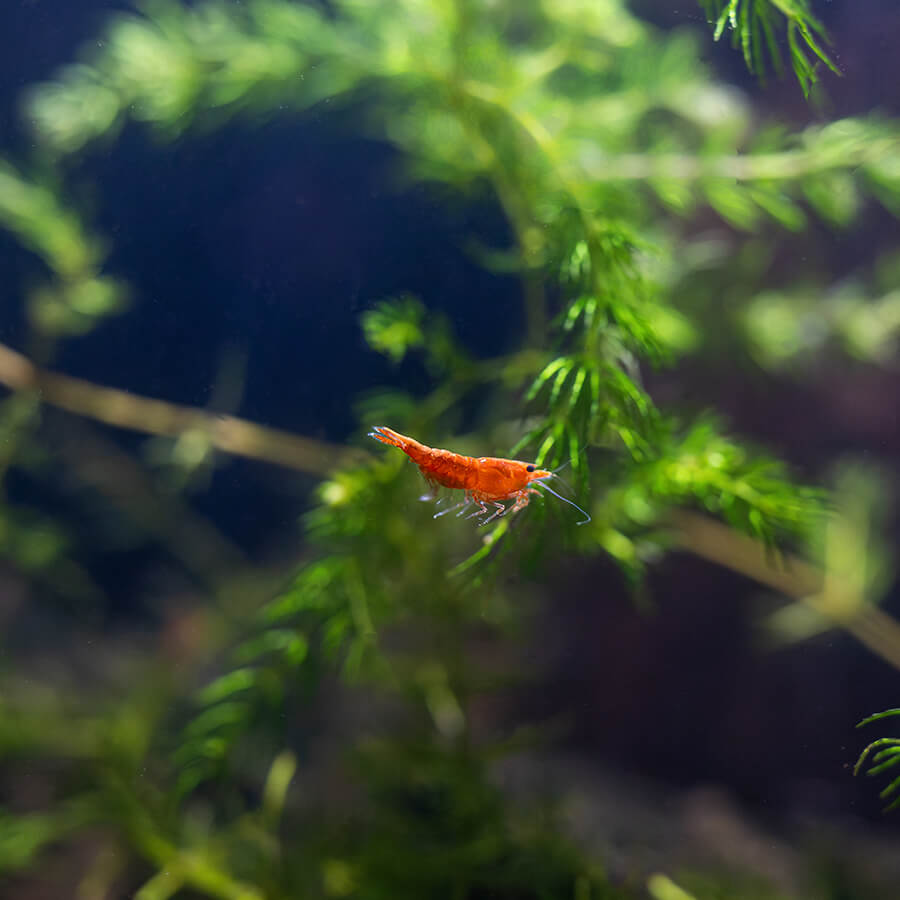
Cherry Shrimp
Tiny social decapods with a knack for recycling and the ability to look good doing it.
-
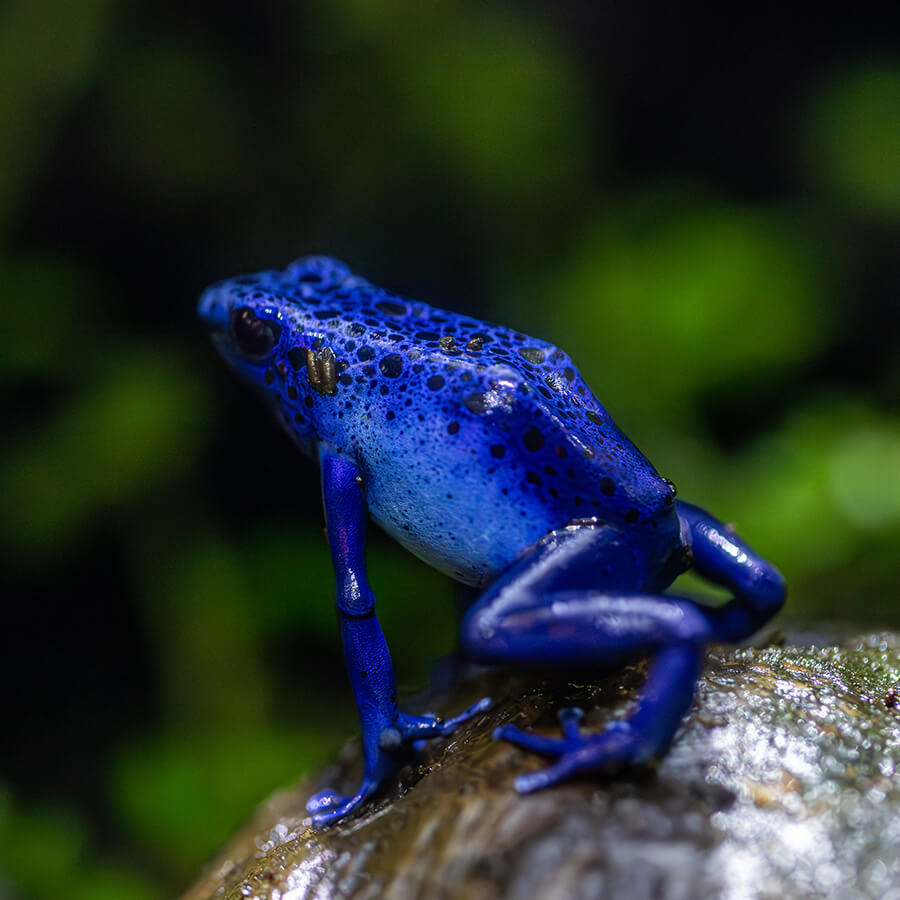
Poison Dart Frog
Bright, bold, and toxic, poison dart frogs use a little bit of color to make a big statement.
Ready to Visit?
From the colorful to the camouflaged, the slightly slimy to the super smooth, each animal in MORPH’D presented by PAR® tells a story of survival.
